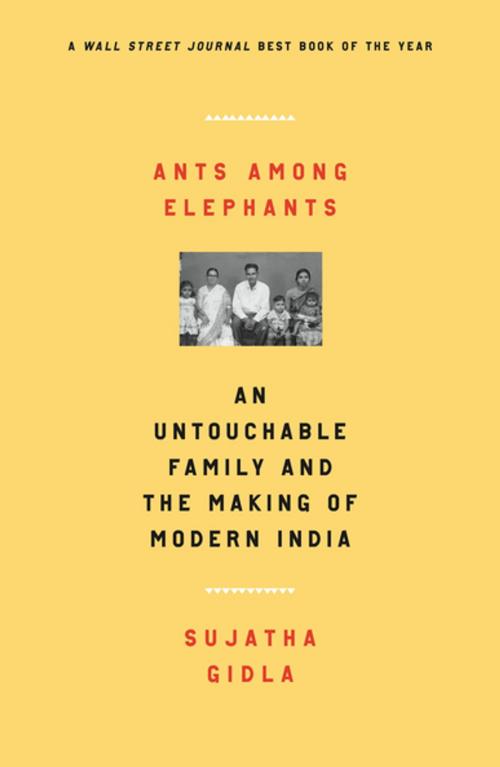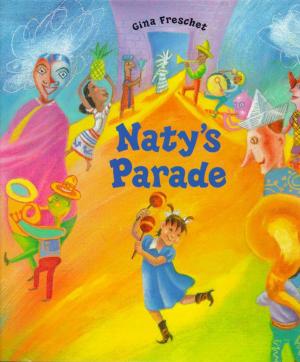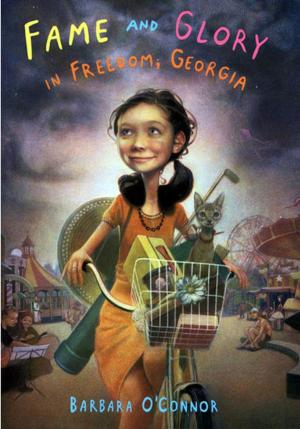Ants Among Elephants
An Untouchable Family and the Making of Modern India
Nonfiction, History, Asian, India, Social & Cultural Studies, Social Science, Discrimination & Race Relations, Biography & Memoir| Author: | Sujatha Gidla | ISBN: | 9780374711382 |
| Publisher: | Farrar, Straus and Giroux | Publication: | July 18, 2017 |
| Imprint: | Farrar, Straus and Giroux | Language: | English |
| Author: | Sujatha Gidla |
| ISBN: | 9780374711382 |
| Publisher: | Farrar, Straus and Giroux |
| Publication: | July 18, 2017 |
| Imprint: | Farrar, Straus and Giroux |
| Language: | English |
A Wall Street Journal Top 10 Nonfiction Book of 2017
A Publishers Weekly Best Book of 2017
A Shelf Awareness Best Book of 2017
"Ants Among Elephants is an arresting, affecting and ultimately enlightening memoir. It is quite possibly the most striking work of non-fiction set in India since Behind the Beautiful Forevers by Katherine Boo, and heralds the arrival of a formidable new writer." —The Economist
The stunning true story of an untouchable family who become teachers, and one, a poet and revolutionary
Like one in six people in India, Sujatha Gidla was born an untouchable. While most untouchables are illiterate, her family was educated by Canadian missionaries in the 1930s, making it possible for Gidla to attend elite schools and move to America at the age of twenty-six. It was only then that she saw how extraordinary—and yet how typical—her family history truly was. Her mother, Manjula, and uncles Satyam and Carey were born in the last days of British colonial rule. They grew up in a world marked by poverty and injustice, but also full of possibility. In the slums where they lived, everyone had a political side, and rallies, agitations, and arrests were commonplace. The Independence movement promised freedom. Yet for untouchables and other poor and working people, little changed. Satyam, the eldest, switched allegiance to the Communist Party. Gidla recounts his incredible transformation from student and labor organizer to famous poet and founder of a left-wing guerrilla movement. And Gidla charts her mother’s battles with caste and women’s oppression. Page by page, Gidla takes us into a complicated, close-knit family as they desperately strive for a decent life and a more just society.
A moving portrait of love, hardship, and struggle, Ants Among Elephants is also that rare thing: a personal history of modern India told from the bottom up.
A Wall Street Journal Top 10 Nonfiction Book of 2017
A Publishers Weekly Best Book of 2017
A Shelf Awareness Best Book of 2017
"Ants Among Elephants is an arresting, affecting and ultimately enlightening memoir. It is quite possibly the most striking work of non-fiction set in India since Behind the Beautiful Forevers by Katherine Boo, and heralds the arrival of a formidable new writer." —The Economist
The stunning true story of an untouchable family who become teachers, and one, a poet and revolutionary
Like one in six people in India, Sujatha Gidla was born an untouchable. While most untouchables are illiterate, her family was educated by Canadian missionaries in the 1930s, making it possible for Gidla to attend elite schools and move to America at the age of twenty-six. It was only then that she saw how extraordinary—and yet how typical—her family history truly was. Her mother, Manjula, and uncles Satyam and Carey were born in the last days of British colonial rule. They grew up in a world marked by poverty and injustice, but also full of possibility. In the slums where they lived, everyone had a political side, and rallies, agitations, and arrests were commonplace. The Independence movement promised freedom. Yet for untouchables and other poor and working people, little changed. Satyam, the eldest, switched allegiance to the Communist Party. Gidla recounts his incredible transformation from student and labor organizer to famous poet and founder of a left-wing guerrilla movement. And Gidla charts her mother’s battles with caste and women’s oppression. Page by page, Gidla takes us into a complicated, close-knit family as they desperately strive for a decent life and a more just society.
A moving portrait of love, hardship, and struggle, Ants Among Elephants is also that rare thing: a personal history of modern India told from the bottom up.















